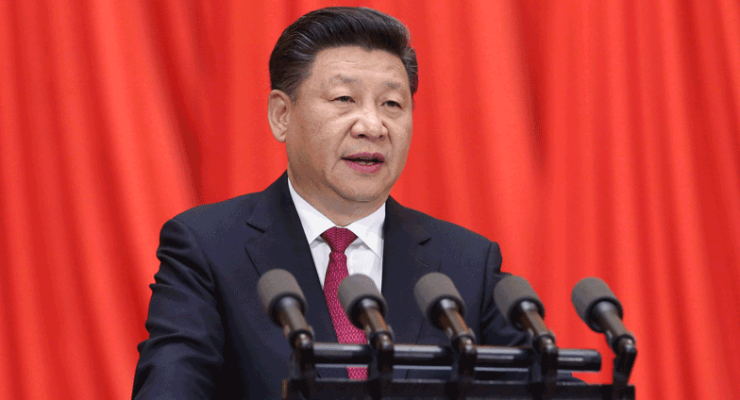
China has succeeded in splitting the 10-nation Association of Southeast Asian Nations on the critical issue of the South China Sea. It’s bad news for Australia and the rest of the region.
Last week, news leaked that ASEAN would not make any joint statement against the the ruling by the Permanent Court of Arbitration in the Hague that China has no historic claims to areas of the South China Sea that are also claimed by the Philippines, as well as six other countries including Taiwan.
The apparent ASEAN non-decision was greeted with a chorus of groans of disappointment by observers who had feared this would happen in the wake of recent dithering. It was hardly a surprise. China has been playing the divide-and-conquer game for the group that officially launched its economic zone on December 31, 2015 but which is, unfortunately, going precisely nowhere.
It’s now publicly clear what observers have known for some time: China is buying off poorer nations — specifically Laos and Cambodia.
Cambodia’s Prime Minister/dictator Hun Sen announced this week that China will give Cambodia almost $600 million in aid to support election infrastructure, education and health projects .
This, mind you, is the same country Australia egregiously handed $40 million under Tony Abbott’s premiership to take refugees from Nauru. It took four; three have already left. Scott Morrison, take a bow.
As a PhD candidate in political and international studies at the University of New South Wales at the Australian Defence Force Academy (ADFA) noted in the East Asia Forum:
“Between 1994 and 2013, Chinese investment in Cambodia was about US$10 billion, focused mainly on agriculture, mining, infrastructure projects, hydro-power dams and garment production. Since 1992, China has also provided around US$3 billion in concessional loans and grants to Cambodia.”
Likewise, Laos is increasingly beholden to Chinese investment — particularly in its resource-rich copper and gold mines, hydro-electric dams and largely impoverished agricultural sectors. Long a close ally of Vietnam — a country that has played a long and canny game of playing off China against the USSR/Russia and the United States, which it is drawing slowly closer towards — Laos is now being swamped by its northern neighbour, much to the chagrin of regular Laotians.
This situation is likely to come to something of a head — albeit not a conclusion — in coming weeks when Laos, for the first time, hosts the annual ASEAN meeting of leaders in the country’s sleepy riverside capital Vientiane from July 26-30. Also attending the meeting will be the “plus 6” observers that consist of China, Japan, India, the US, Russia and Australia.
There are further signs of ASEAN fracturing with Indonesia and Vietnam both individually preferring strong responses to the court hearings.
Along with the Philippines, Vietnam has been the most vocal in its rhetoric against China, and anti-Chinese riots broke out in 2014 when China towed an oil rig into waters disputed with Vietnam.
[China will eat UK for Brexit]
There’s a further, domestic wrinkle in Australia’s powder-puff response to the Hague’s ruling last week, and it’s the result of the dithering PM Malcolm Turnbull’s failure to appoint a new head of DFAT ahead of the election.
The favorite in a six-horse race is his senior foreign policy adviser Frances Adamson who moved straight into Turnbull’s office after a four-year stint as Australian Ambassador to China.
If she gets the job, the PM then needs to break in a replacement, and it’s hardly ideal timing to be doing this. Adamson is solid on China, although it has always been impossible to divine her real thoughts on important issues. Like a true diplomat, she is expert at reading the tea leaves and bending with the changes in the political winds — she has worked as a senior adviser to former foreign affairs and defence minister Stephen Smith in the previous Labor administrations — and she surely has a hand in the latest limp response.
Her replacement should have much wider expertise in the region — particularly with ASEAN, where Australia should already be working with the US and Japan, to convince it to make a strong stand against China at this critical point. Australia has good-to-excellent sovereign relations with the 10 ASEAN nations and strong personal connections across the region due to the widespread use of its universities by the region’s elites and its strong — albeit now reduced — aid program as well as strengthening military ties with Singapore, the Philippines and Vietnam.
[To hell with lost trade, Australia needs to stand up to China — and soon]
Bishop’s by-the-numbers response to the international courts finding in favor of the Philippines, as noted by Crikey last week underscores Australia’s continued ambivalence about broader engagement with its closest neighbours.
The recent strategic deal with Singapore was a very positive step towards this. Now it’s time for the PM and Bishop to actively engage more heavily with all of Australia’s south-east Asian neighbours rather than buffer the coffers of their dictators. Unlike China, in general, they like us and want our help and are afraid of being economically annexed by China, like Laos and Cambodia have been.








Crikey is committed to hosting lively discussions. Help us keep the conversation useful, interesting and welcoming. We aim to publish comments quickly in the interest of promoting robust conversation, but we’re a small team and we deploy filters to protect against legal risk. Occasionally your comment may be held up while we review, but we’re working as fast as we can to keep the conversation rolling.
The Crikey comment section is members-only content. Please subscribe to leave a comment.
The Crikey comment section is members-only content. Please login to leave a comment.